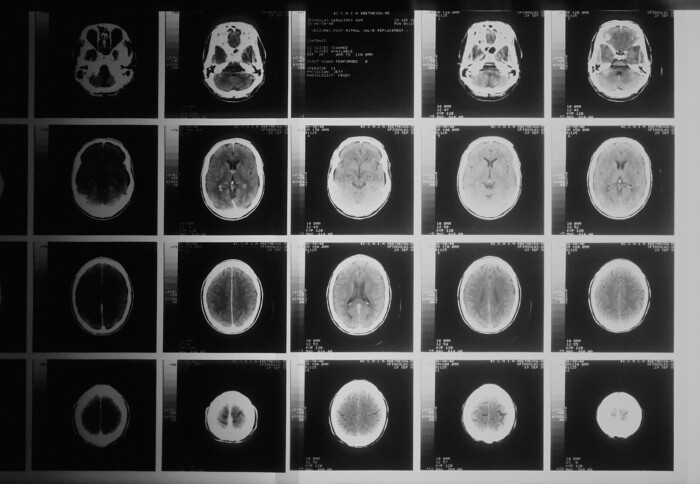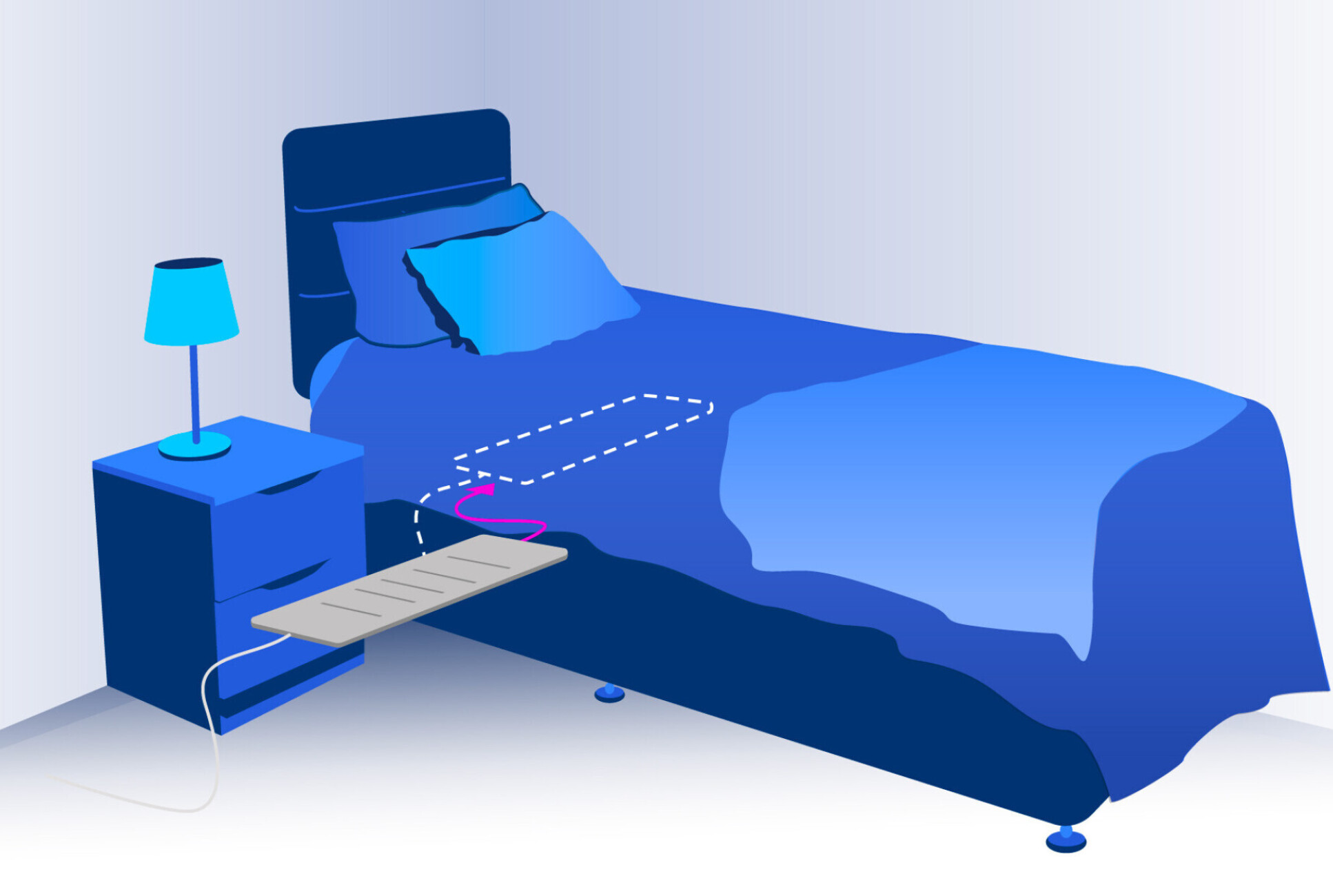Imperial’s Alzheimer’s research impact
by Lou Lee

To mark World Alzheimer’s Day, we explore how Imperial College London is advancing our knowledge of Alzheimer’s disease and other dementias.
Alzheimer’s disease is a brain condition that causes a progressive decline in memory, thinking, and behaviour, eventually impairing a person’s ability to carry out everyday activities. It is the most common cause of dementia, affecting around six in every 10 people with dementia in the UK.
World Alzheimer’s Day is a vital opportunity to raise awareness, address misconceptions, and promote understanding of the disease. We look back at the past year to see how Imperial’s researchers are advancing our understanding of Alzheimer’s and other dementias.
Transforming dementia care with ‘smart’ socks
Research led by the UK DRI Care Research and Technology Centre at Imperial, and run in collaboration with the University of Surrey and the Surrey and Borders Partnership NHS Foundation Trust, is investigating how a sock which combines sensors with artificial intelligence, could support people living with dementia to live in their own homes for as long as possible.

The innovative ‘SmartSocks’ could help care staff detect agitation and prevent falls in people with dementia by tracking heart rate, sweat levels and motion. To the wearer, they look and feel like normal socks, so could provide a minimally invasive way to monitor people’s wellbeing and cognitive state.
Dr Shlomi Haar, Emerging Leader at the UK Dementia Research Institute Care Research & Technology Centre and Department of Brain Sciences, said:"Combining the socks with our existing technology will greatly expand our capabilities to monitor, understand and anticipate the needs of people living with dementia.”
Analysing sleep patterns to detect early dementia
Researchers at Imperial, UK Dementia Research Institute, UCL and Newcastle University are exploring whether a pioneering sleep sensor mat which can detect heart rate, respiration rate, and sleep phases can help identify people at risk of dementia.

The major new project will use ‘Sleep Analyzer’ tracking mats to monitor the sleep patterns of 250 individuals. These will then be compared with their brain scans and health data to see if it is possible to predict which members could be at risk of dementia.
Project lead Professor David Sharp, Professor of Neurology at Imperial and Centre Director of the UK DRI Care Research & Technology Centre, said: “This is a very exciting opportunity to explore whether new digital monitoring technology can be used to identify early signs of neurodegeneration in the brain.
Uncovering Alzheimer’s biological pathway
Imperial-led research uncovered a new biological pathway that may explain the underlying mechanisms of Alzheimer’s disease, offering targets for future drug discovery.
Our study is an important step closer to understanding the underlying mechanisms of Alzheimer’s. Professor Paul Elliot Group Leader at the UK DRI Centre at Imperial
The study which analysed blood samples from 2600 people, identified a link between ABCA7, a known Alzheimer’s risk gene, and altered levels of a molecule known as lactosylceramide in the blood.
Professor Paul Elliott, Group Leader at the UK DRI Centre at Imperial and leader of the study, said: “Our study is an important step closer to understanding the underlying mechanisms of Alzheimer’s, which could aid in the development of new drugs to treat the condition.”
Tackling digital exclusion in dementia
As part of the Digital Inclusion Innovation Programme, run by the Greater London Authority and the London Office for Technology and Innovation (LOTI), the Helix Centre (part of the UK Dementia Research Institute Care Research & Technology Centre at Imperial College London) undertook a London-wide project to co-design and pilot new ways to provide community dementia support.
The designers worked with people living with dementia to create a straightforward way for inexperienced users of technology to access Zoom calls. They developed the ‘Tap and Chat’ digital befriending kit, which makes it easy to use a standard computer tablet for video calls. The designers collected their learnings from creating this befriending kit to produce a toolkit to help other innovators to tackle digital exclusion.
Alice Gregory, Design Associate at the Helix Centre, said: “Our ambition was to create a designed intervention that could help people living with dementia and their carers, who have little technical literacy, to engage with social activity online.”
Diagnosing Alzheimer’s with a single brain scan
A ground-breaking study by Imperial found a single MRI scan of the brain could be enough to diagnose Alzheimer’s disease. The research used machine learning technology to look at structural features within the brain, including in regions not previously associated with Alzheimer’s.
Currently no other simple and widely available methods can predict Alzheimer’s disease with this level of accuracy, so our research is an important step forward. Professor Eric Aboagye Professor of Cancer Pharmacology & Molecular Imaging
The researchers found that in 98 per cent of cases, the MRI-based machine learning system alone could accurately predict whether the patient had Alzheimer’s disease or not. It was also able to distinguish between early and late-stage Alzheimer’s in 79 per cent of patients.
Professor Eric Aboagye, from Imperial’s Department of Surgery and Cancer, who led the research, said: "Currently no other simple and widely available methods can predict Alzheimer’s disease with this level of accuracy, so our research is an important step forward."
Article text (excluding photos or graphics) © Imperial College London.
Photos and graphics subject to third party copyright used with permission or © Imperial College London.
Reporter
Lou Lee
Faculty of Medicine Centre